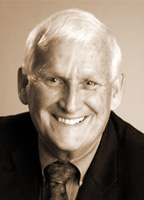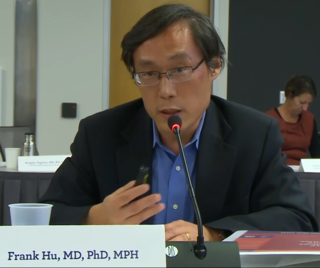
Sugar is the generic name for sweet-tasting, soluble carbohydrates, many of which are used in food. Simple sugars, also called monosaccharides, include glucose, fructose, and galactose. Compound sugars, also called disaccharides or double sugars, are molecules made of two bonded monosaccharides; common examples are sucrose, lactose, and maltose. White sugar is a refined form of sucrose. In the body, compound sugars are hydrolysed into simple sugars.

Fructose, or fruit sugar, is a ketonic simple sugar found in many plants, where it is often bonded to glucose to form the disaccharide sucrose. It is one of the three dietary monosaccharides, along with glucose and galactose, that are absorbed by the gut directly into the blood of the portal vein during digestion. The liver then converts both fructose and galactose into glucose, so that dissolved glucose, known as blood sugar, is the only monosaccharide present in circulating blood.

Corn syrup is a food syrup which is made from the starch of corn and contains varying amounts of sugars: glucose, maltose and higher oligosaccharides, depending on the grade. Corn syrup is used in foods to soften texture, add volume, prevent crystallization of sugar, and enhance flavor. Corn syrup is not the same as high-fructose corn syrup (HFCS), which is manufactured from corn syrup by converting a large proportion of its glucose into fructose using the enzyme D-xylose isomerase, thus producing a sweeter substance.

High-fructose corn syrup (HFCS), also known as glucose–fructose, isoglucose and glucose–fructose syrup, is a sweetener made from corn starch. As in the production of conventional corn syrup, the starch is broken down into glucose by enzymes. To make HFCS, the corn syrup is further processed by D-xylose isomerase to convert some of its glucose into fructose. HFCS was first marketed in the early 1970s by the Clinton Corn Processing Company, together with the Japanese Agency of Industrial Science and Technology, where the enzyme was discovered in 1965.

Agave syrup, also known as maguey syrup or agave nectar, is a sweetener commercially produced from several species of agave, including Agave tequilana and Agave salmiana. Blue-agave syrup contains 56% fructose as a sugar providing sweetening properties.

Gary Taubes is an American journalist, writer, and low-carbohydrate / high-fat (LCHF) diet advocate. His central claim is that carbohydrates, especially sugar and high-fructose corn syrup, overstimulate the secretion of insulin, causing the body to store fat in fat cells and the liver, and that it is primarily a high level of dietary carbohydrate consumption that accounts for obesity and other metabolic syndrome conditions. He is the author of Nobel Dreams (1987); Bad Science: The Short Life and Weird Times of Cold Fusion (1993); Good Calories, Bad Calories (2007), titled The Diet Delusion (2008) in the UK and Australia; Why We Get Fat: And What to Do About It (2010); The Case Against Sugar (2016); and The Case for Keto: Rethinking Weight Control and the Science and Practice of Low-Carb/High-Fat Eating (2020). Taubes's work often goes against accepted scientific, governmental, and popular tenets such as that obesity is caused by eating too much and exercising too little and that excessive consumption of fat, especially saturated fat in animal products, leads to cardiovascular disease.

The Western pattern diet is a modern dietary pattern that is generally characterized by high intakes of pre-packaged foods, refined grains, red meat, processed meat, high-sugar drinks, candy and sweets, fried foods, industrially produced animal products, butter and other high-fat dairy products, eggs, potatoes, corn, and low intakes of fruits, vegetables, whole grains, pasture-raised animal products, fish, nuts, and seeds.

John Yudkin FRSC was a British physiologist and nutritionist, and the founding Professor of the Department of Nutrition at Queen Elizabeth College, London.

George L. Blackburn was the S. Daniel Abraham Professor of Nutrition and associate director of the division of nutrition at Harvard Medical School. He was also director of the Center for the Study of Nutrition Medicine (CSNM) in the Roberta and Stephen R. Weiner Department of Surgery, and director of the new Feihe Nutrition Laboratory at Beth Israel Deaconess Medical Center (BIDMC), Boston, Massachusetts.

Robert H. Lustig is an American pediatric endocrinologist. He is Professor emeritus of Pediatrics in the Division of Endocrinology at the University of California, San Francisco (UCSF), where he specialized in neuroendocrinology and childhood obesity. He is also director of UCSF's WATCH program, and president and co-founder of the non-profit Institute for Responsible Nutrition.
Critics and competitors of high-fructose corn syrup (HFCS), notably the sugar industry, have for many years used various public relations campaigns to claim the sweetener causes certain health conditions, despite the lack of scientific evidence that HFCS differs nutritionally from sugar. The HFCS industry has tried to respond to these campaigns with their own efforts.

Added sugars or free sugars are sugar carbohydrates added to food and beverages at some point before their consumption. These include added carbohydrates, and more broadly, sugars naturally present in honey, syrup, and fruits. They can take multiple chemical forms, including sucrose, glucose (dextrose), and fructose.

A sweetened beverage is any beverage with added sugar. It has been described as "liquid candy". Consumption of sweetened beverages has been linked to weight gain, obesity, and associated health risks. According to the CDC, consumption of sweetened beverages is also associated with unhealthy behaviors like smoking, not getting enough sleep and exercise, and eating fast food often and not enough fruits regularly.
Barry Michael Popkin is an American nutrition and obesity researcher at the Carolina Population Center and the W.R. Kenan Jr. Distinguished Professor of Nutrition at the University of North Carolina at Chapel Hill School of Public Health, where he is the director of the Interdisciplinary Center for Obesity. He developed the concept of "nutrition transition". He is the author of over 490 journal articles and a book, "The World is Fat".
Citizens for Health is a U.S. non-profit organization which advocates on issues affecting nutrition, obesity, dietary supplements, food labeling and other health matters.

Frank B. Hu is a Chinese American nutrition and diabetes researcher. He is Chair of the Department of Nutrition and the Fredrick J. Stare Professor of Nutrition and Epidemiology at the Harvard T.H. Chan School of Public Health, and Professor of Medicine at the Harvard Medical School.
Obesity medicine is a field of medicine dedicated to the comprehensive treatment of patients with obesity. Obesity medicine takes into account the multi-factorial etiology of obesity in which behavior, development, environment, epigenetic, genetic, nutrition, physiology, and psychosocial contributors all play a role. As time progresses, we become more knowledgeable about the complexity of obesity, and we have ascertained that there is a certain skill set and knowledge base that is required to treat this patient population. Clinicians in the field should understand how a myriad of factors contribute to obesity including: gut microbiota diversity, regulation of food intake and energy balance through enteroendocrine and neuroregulation, and adipokine physiology. Obesity medicine physicians should be skilled in identifying factors which have contributed to obesity and know how to employ methods to treat obesity. No two people with obesity are alike, and it is important to approach each patient as an individual to determine which factors contributed to their obesity in order to effectively treat each patient. Physicians specializing in obesity medicine may choose to obtain board certification by the American Board of Obesity Medicine.
John L. Sievenpiper is a Canadian nutrition scientist and associate professor at the University of Toronto's Department of Nutritional Sciences. He is known for his research on fructose and weight gain, which has reported that fructose does not have any more adverse health effects than other sources of calories. However, in March 2015 the World Health Organization recommended to reduce sugars intake among adults and children.

Pure, White and Deadly is a 1972 book by John Yudkin, a British nutritionist and former Chair of Nutrition at Queen Elizabeth College, London. Published in New York, it was the first publication by a scientist to anticipate the adverse health effects, especially in relation to obesity and heart disease, of the public's increased sugar consumption. At the time of publication, Yudkin sat on the advisory panel of the British Department of Health's Committee on the Medical Aspects of Food and Nutrition Policy (COMA). He stated his intention in writing the book in the last paragraph of the first chapter: "I hope that when you have read this book I shall have convinced you that sugar is really dangerous."

Sugar is heavily marketed both by sugar producers and the producers of sugary drinks and foods. Apart from direct marketing methods such as messaging on packaging, television ads, advergames, and product placement in setting like blogs, industry has worked to steer coverage of sugar-related health information in popular media, including news media and social media.














